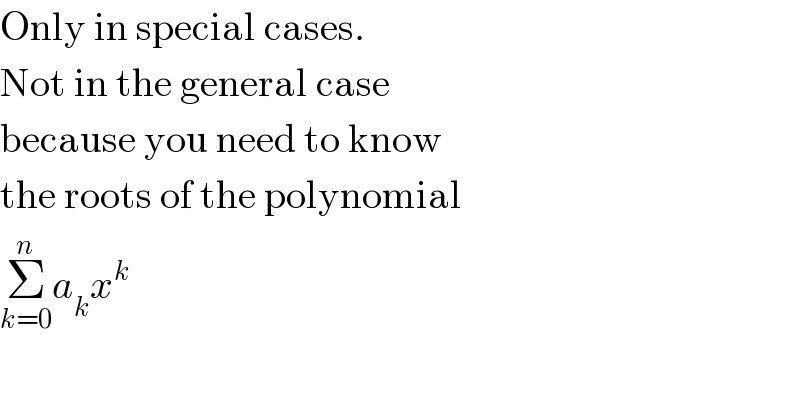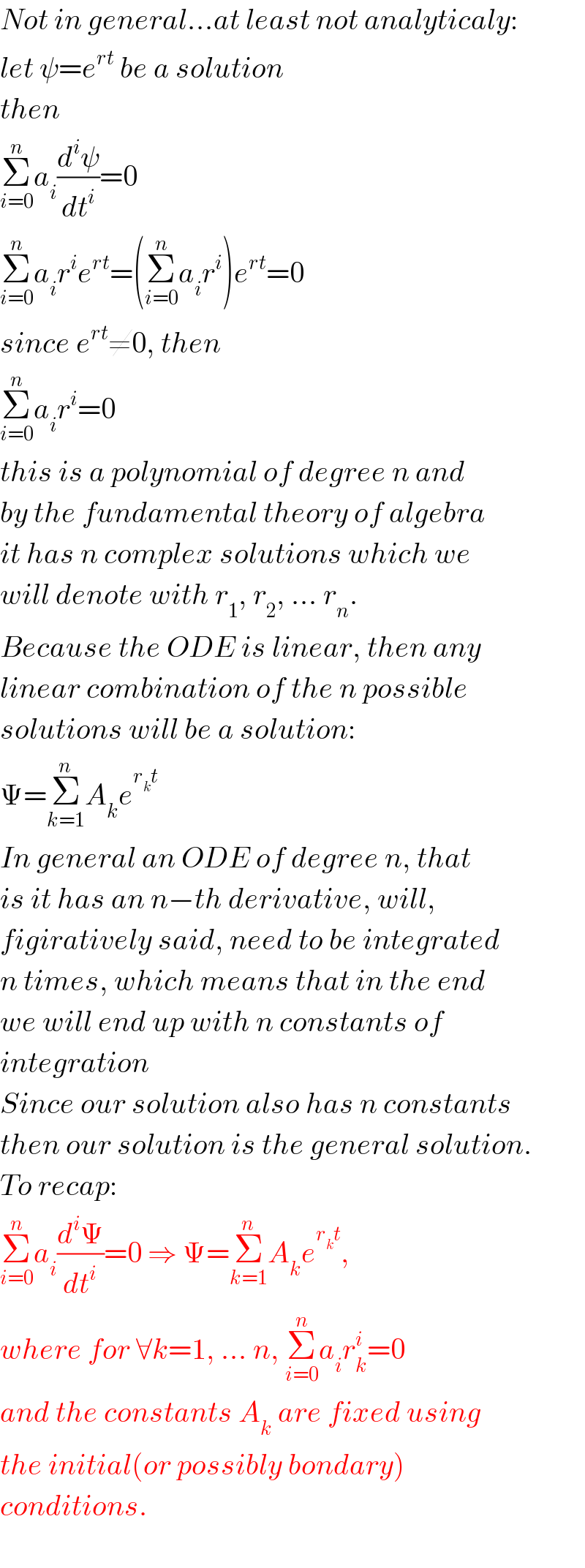
Question and Answers Forum
Previous in Differential Equation Next in Differential Equation
Question Number 114722 by Dwaipayan Shikari last updated on 20/Sep/20

Answered by Olaf last updated on 21/Sep/20

Answered by aleks041103 last updated on 21/Sep/20

